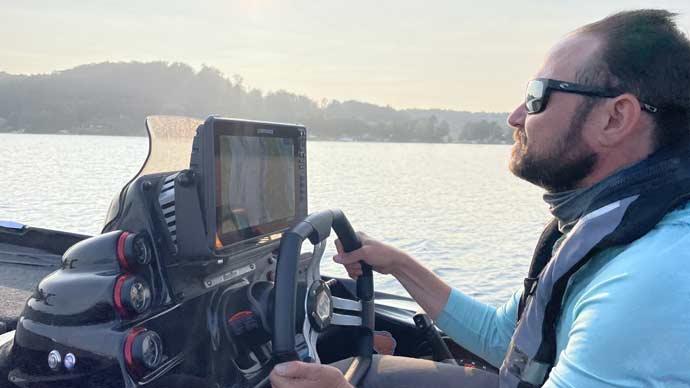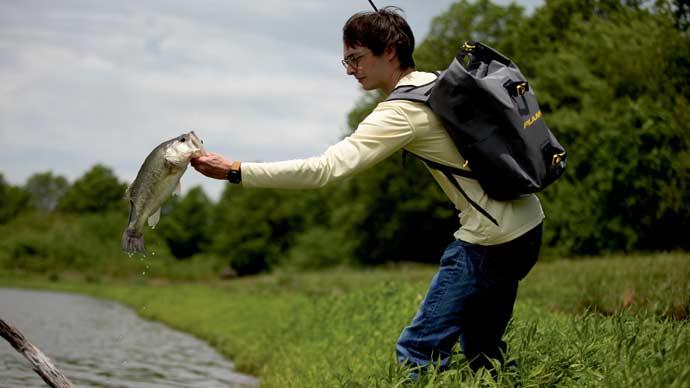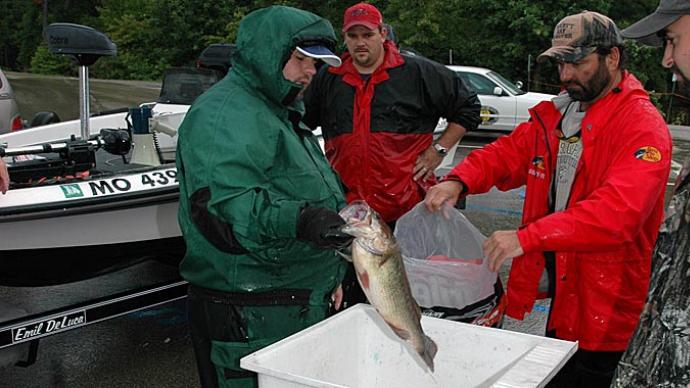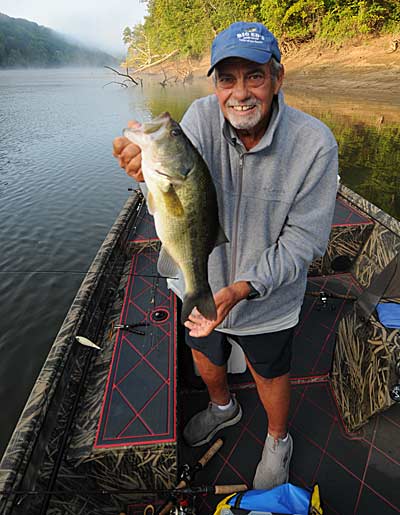
High school and college bass fishing has created a new and improved way for beginners to become better anglers.
School teams present a structured educational program to some young anglers, but others have to learn how to bass fish through the College of Hard Knocks. Before the creation of high school and college bass fishing, beginners had to hone their bass fishing skills through trial and error.
Lake of the Ozarks guide Ed Franko is a classic example of a successful bass fisherman who learned the sport through self-teaching and mentorship. “I started when I was about 7 or 8 years old," Franko says. “I fished a farm pond in Illinois quite a bit and got hooked on bass fishing at a young age.”
During the 1970's Franko was "into trout fishing" but read an article about the Red Man bass tournament circuit and decided to try it. After competing in his first Red Man event at Lake Shelbyville in Illinois, Franko got hooked on tournaments and started fishing competitively as often as his work schedule allowed. When he moved to the Lake of the Ozarks, Franko became a guide (https://bigedsguideservice.com) and now serves as a mentor for his clients to improve their bass fishing skills.
Here are Franko's tips for beginners on becoming better bass anglers.
Find a good place to start. Ponds are a great starting location for beginners. If you can get permission from the pond owner, you have access to a spot that allows you to fish from the bank for bass that receives little fishing pressure and are easier to catch than the heavily pressured bass in the bigger impoundments. “Almost everybody will let you fish their place as long as you keep it neat and clean and don’t litter around, cause a problem and keep too many fish,” Franko says.
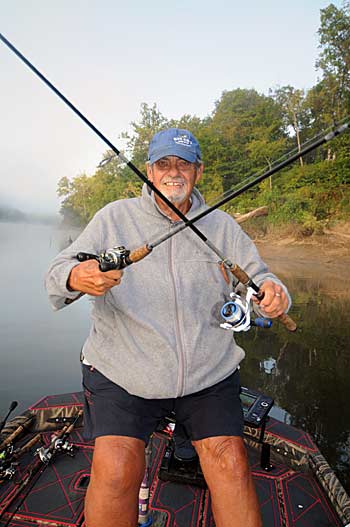
Learn to cast. "Casting is your whole deal," Franko says. "Pinpoint accuracy is what makes bass bite. If you can throw it in the right hole, that is one step above. In my line of business, I have people who don't even know how to hold a fishing pole. They hold a spinning rod upside down, and I must teach them from the ground up."
Learn from mentors. Franko says he learned from many mentors throughout the years and still has fellow anglers he considers his mentors today even though he has plenty of fishing experience. "You still have to learn," he says. "If you go out on the water and think you know everything and are not open-minded, then you will not be an excellent angler." Instead, Franko suggests you learn something new every time you are on the water with someone and can learn simple tasks like tying a new knot from others.
Buy affordable equipment. “If they can afford to buy good stuff, then buy good stuff because it will last them forever," Franko says. The guide suggests that beginners should consider how much they want to get involved in fishing (either for a couple of years or the rest of their lives) before purchasing quality equipment.
Matching tackle to techniques. Franko recommends that beginners should learn how to use both spinning and baitcasting gear and know which tackle to use for the wide range of today’s bass tactics. The simple formula is to employ spinning tackle for finesse techniques and baitcasting gear for power tactics. “If you tried to throw a Ned rig on a baitcaster, it would be near impossible,” Franko says. “You never have the accurate casting that you have doing with spinning tackle."
Start simple with lures. "The beginning angler should buy some plastic worms and worm weights to set up for worm fishing," Franko says. "If you can fish a worm, you can fish about anything." Franko suggests also buying some crankbaits and topwater lures such as the River2Seas Whopper Plopper. The guide warns against getting hung up on the vast array of lure color choices. Instead, he recommends keeping lure color selections simple such as buying soft plastics in green pumpkin or black-and-blue jigs or topwaters with white bellies.
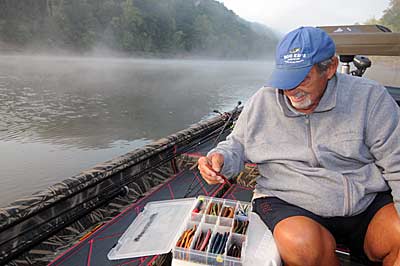
Join a bass club to start fishing competitively. "Clubs are excellent because you get to fish with multiple people, and you also get to fish all different styles and different lakes,” Franko says. “You will learn some (from everyone in the club). It doesn't matter how good or bad the fisherman you are paired with. You soon learn what you can and can't do." Franko says he fished in a bass club for a couple of years and "enjoyed it well."
Join a tournament circuit as a co-angler. After gaining experience through a bass club, the next step for an aspiring angler should be to join a tournament circuit as a non-boater or co-angler. "It gives you more experience with somebody with a little more experience, and you can learn from them too,” Franko says. “Then you will find there are times when you think you know more than the guy up in the front of the boat, and when you get to that position, you need to switch up to the pro division."
Hire a guide. This advice is beneficial when a novice angler visits a new lake. Franko notes that a guide can help you learn the lake quicker by showing you the seasonal patterns that work best during your visit. Franko teaches his clients where bass hang out along the lake's contours and how to find the right docks to fish at the Lake of the Ozarks.


